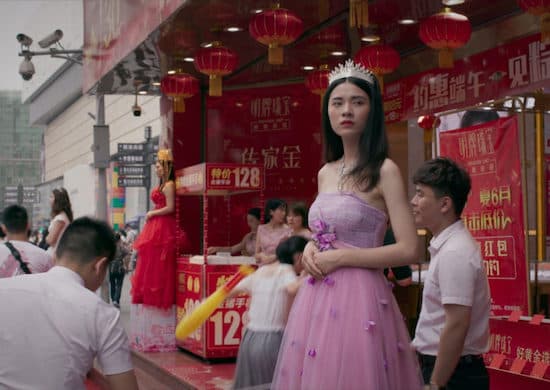‘Stonewalling’ Will Reward Viewers’ Patience and Trust
You’d have to go to Russian literature to find something similar in terms of what Huang Ji and Otsuka Ryuji have brought us with this film. Think Chekhov, Dostoevsky, and Gogol.

Movies are too damned long these days. Increasing life expectancy is one of the many reasons that have been posited for why this is; we have, bless our souls, more time to waste and, you know how it goes, supply meets demand. The different formats by which we watch films, and how we watch them, figure into it as well, and then there’s money, always money: Throw enough cash at a picture and the filmmaker or studio will be less inclined to stint on showing just how it was invested.
A sure marker that a picture is longer than it should be is how often we’re inclined to check our watches while in the theater or on the sofa. When a film is good — when it sustains and rewards our attention — its length becomes a moot issue. All of which is a roundabout way of saying that “Stonewalling,” the new film by Huang Ji and Otsuka Ryuji that clocks in at 147 minutes, is exactly as long as it needs to be. It opens March 10 at Film at Lincoln Center.
The picture isn’t, admittedly, an easy ride, but this says a lot about the assured tempo established by Ms. Huang and Mr. Otsuka, the husband-and-wife team whose previous films include “The Foolish Bird” (2017) and “Trace” (2013). “Stonewalling” is no swift entertainment: Its pace is measured and the story doled out in extended and sometimes abstruse chunks. The camera doesn’t participate, it observes: Whether taking in an encompassing vista or placing us at an intimate proximity to the players, the vantage point is distanced. Economy reigns.
This isn’t to suggest that “Stonewalling” lacks in drama; rather, that its tensions are arrived at through a steady accumulation of diffuse incidents. There’s a moment toward the end of the film, during which two characters engage in silent tête-à-tête regarding a financial obligation, that is among the most weighted scenes in recent memory. Most other cinematic offerings are, in comparison, so much flummery. But, then, the viewer does have to extend the requisite amount of patience and trust in the filmmakers to get there.
At the center of “Stonewalling” is Lynn (Yao Hongui), a 20-year-old woman of ordinary mien. She has plans — kind of. Learning English is one of them; attending a school for flight attendants is another. She’s not doing well at either pursuit. Like many of her generation, Lynn spends an inordinate amount of time on her phone. Even amongst her peers and especially with her boyfriend (Liu Long), a self-obsessed sort who is some combination of model and deejay, Lynn remains aloof. Ennui can’t begin to describe the fog through which she’s drifting.
Then Lynn gets pregnant. The boyfriend suggests an abortion. Lynn agrees … until she doesn’t. Packing her bags, Lynn heads home to mom and dad. Her parents — portrayed by Ms. Huang’s actual mother and father — are lower middle-class and constitute their own kettle of dysfunction.
Mom runs a women’s health clinic of dubious propriety. When she’s not committing malpractice — an important plot point — mom is hustling Vital Cream, an elixir that has all the medicinal integrity of snake oil. Dad helps out in the clinic: That is, when he’s not giving mom a black eye. If all that weren’t enough, there’s the proposed marketing of Lynn’s baby to a cautious-bordering-on-paranoid businessman. Then Covid strikes. All the while, the fetus continues to grow.
The filmmakers have done their homework, predicating “Stonewalling” on interviews with a bevy of college-age women, as well as on their own ruminations on a post-Tik Tok China, the strange shape capitalism has taken in a communist country, and a question posited by their 5-year-old daughter: “Mommy and Daddy, why did you give birth to me?” Given their answer — that is to say, a profoundly despondent movie with no ready moral at hand — one can only swallow hard in trepidation.
Still and all, “Stonewalling” is a fascinating film, being a prosaic story set against a backdrop of no mean proportions involving characters whose desperation is equaled only by their pettiness. You’d have to go to Russian literature to find something similar in terms of what Ms. Huang and Mr. Otsuka brought us here. Lynn could be lifted from a story by Chekhov, her parents refugees from Dostoevsky, and Gogol might as well be credited for the mealy-mouthed opportunist haggling over the terms by which he’s purchasing a child.
Should that kind of dour admixture of comedy and tragedy be to your taste, “Stonewalling” is worth your money and, yes, your time.

